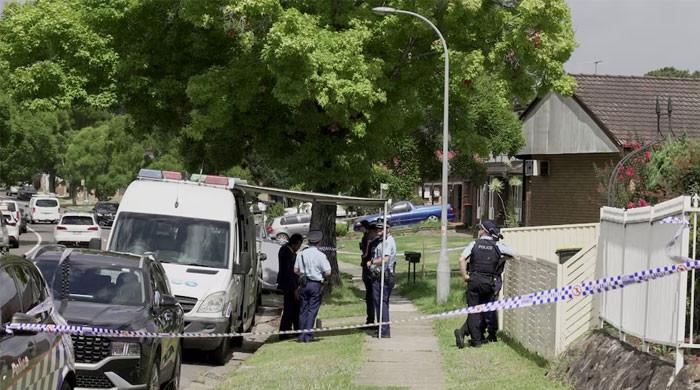British PM facing rebellion over key Brexit bill
Brexit Minister David Davis promised that lawmakers would have a vote on the withdrawal agreement
December 13, 2017
LONDON: British Prime Minister Theresa May faced a rebellion by her own MPs on Wednesday over parliament's role in authorising a final Brexit deal, threatening a damaging defeat at home even as she makes progress in Brussels.
Members of May´s Conservative party are demanding that an explicit legal guarantee be included in the landmark EU (Withdrawal) Bill to ensure MPs get a vote before any deal is signed.
Dominic Grieve, a Conservative MP and former attorney general, has submitted an amendment to the bill, which has been signed by ten other Tory MPs and is backed by the main opposition Labour party.
"The government needs to listen to what's being said to them," Grieve told Sky News television.
"It seems to be a bit of a dialogue of the deaf. They've turned this into a battle of wills."
The government has insisted it will not back down but the amendment is due to be voted on later on Wednesday, in what could lead to a parliamentary defeat for May.
That would be a blow on the eve of a crucial summit in Brussels, where EU leaders are expected to approve the terms of the interim Brexit deal agreed last week after months of tortuous negotiations.
Hampering 'smooth' Brexit
Tory MP Iain Duncan Smith, a hardline Brexiteer, earlier accused Grieve of "looking for ways to derail the bill", saying his amendment would "tie the government´s hands" in negotiations with the EU.
In a bid to smooth Britain's exit, the bill would transfer thousands of pieces of European legislation onto the UK statute books and give ministers powers to amend them to address any technical glitches.
These so-called "Henry VIII" powers also extend to the implementation of the divorce deal agreed with Brussels - something many MPs say is unacceptable.
In a last-ditch attempt to avoid a rebellion, Brexit Minister David Davis promised that lawmakers would have a vote on the withdrawal agreement.
Parliament would then be asked to vote on a further piece of legislation to implement the divorce deal.
But ministers want to preserve their special powers - statutory instruments - in the event that this law is not passed in time for Brexit day on March 29, 2019.
"As currently drafted what the amendment says is that we shouldn't put any of those statutory instruments into place until the Withdrawal Agreement and Implementation Bill has reached the statute book," May said.
"That could be at a very late stage in the proceedings, which could mean that we are not able to have the orderly and smooth exit from the European Union that we wish to have."
'Blank cheque'
After months of wrangling, May secured a deal last week on three priorities of the separation - Britain´s financial settlement, the Irish border and the rights of expatriates.
It was a rare moment of triumph for the prime minister, who has been struggling to assert her authority since losing her parliamentary majority in a disastrous election in June.
The European Parliament on Wednesday gave its backing to the deal, and EU leaders meeting in Brussels on Thursday and Friday are expected to give the green light to move the Brexit negotiations onto trade.
However, the sense of victory has been tempered by a dispute with Brussels over comments made by Davis at the weekend, suggesting Britain was not fully committed to the agreement.
Commentators have also warned of domestic trouble ahead for May, as the deal leaves open many questions about Britain´s future relationship with the EU.
Ahead of Wednesday´s vote, Grieve warned that ministers were asking for "a blank cheque to the government to achieve something that, at the moment, we don´t know what it is".









